TV Tinsel: From shy to 'Outrageous,' Bessie Carter finds her alignment
Published in Entertainment News
While the pandemic left a trail of destruction behind it, for British actress Bessie Carter it proved auspicious. “The first lockdown for COVID was a real stop; obviously the world stopped,” she says.
“But for me, my life felt like it was moving at 500 miles per hour before that, and then when the first lockdown happened, it forced me to stop and ask myself what's aligned in my life and what is not aligned?”
Carter had known she wanted to act since she was a tiny tomboy. She was 11 when she played her first role, Henry VIII. “It was a musical called ‘Henry the Tudor Dude,’ and we had a beard from the National Theatre that my mother borrowed for me, and a pillow stuffed up my shirt.”
As a kid, that didn’t phase her. But because she was shy, it did phase her to meet new playmates. “My dad always had to introduce me to other kids on holidays, like he would have to come with me and make the introduction and then I'd be like, ‘Go away, Dad.’ And I'd be doing racing dives in the pool or whatever, and I was very outdoorsy, very sporty.”
Though she’s still shy, it never interferes with her work. Carter, who’s costarred in shows like “Bridgerton” and “Howards End,” is starring in the five-parter “Outrageous,” streaming on BritBox.
She plays the oldest of the six infamous Mitford sisters, aristocrats who rattled British society as storm clouds gathered before World War II.
As Nancy Mitford, who later became famous as an author, Carter says, “I didn't know a lot about her and I knew the sort of headlines I suppose of the other sisters. And then, reading the script and then deep-diving into the book it's based off of, the Mary S. Lovell biography ‘The Sisters’ — all about the sisters — I was just fascinated. But I didn't know the full story. You just can't believe it's all true. It’s stranger than fiction.”
It was probably predestined that Carter would become an actress. She’s the daughter of actress Imelda Staunton (“Vera Drake” and two “Harry Potter” films) and Jim Carter, best known as the sensible butler, Mr. Carson, in “Downton Abbey.”
Carter says she never observed the downside of performing from her parents. “I actually saw two people in my household loving it and very much doing it as a very achievable job; they were jobbing actors. They were doing a play here, going off to Romania to film a series there.
“And I just grew up feeling and believing that it was a very viable job, and it was never anything that they discouraged me from doing because it just so happened to be the thing that I loved the most, as well as the thing that they obviously did as well.”
All was going swimmingly for the 31-year-old actress when COVID hit. It marked a turning point for her. “I just slowly started to kind of 'spring clean' the things out of my life that weren't actually in keeping with who I really was,” she recalls.
“It was a really grounding time. I know it's a really terrible time, but it was a moment that I really stopped and looked at myself.”
Carter admits to being what she calls “fully woo-woo.” “I do yoga. I'm actually going on a retreat tomorrow in the middle of Wales with no phone signal, where there's going to be sitting around a campfire, going on hikes, and doing breath work and sound-bars (sound therapy tools) and all of that. I’m very connected to all of that.”
It’s not a religion, she insists. “I think it's just a form of spirituality being connected to nature and trying to be as connected to myself as I can be and as present as I can be and the best version of myself I can be — without being fakely positive.
“I think I've always been connected to some form of magic,” she continues. “My childhood was full of making potions and playing outside and being connected to the Earth and mucking around in ponds. And I was always really connected to Mother Earth. Then I think along the way you lose your connection to that because you're growing up, and you're testing out who you are.”
She says that for her, growing up stimulated a new perspective. “You start to become a woman, you start to realize that we all have cycles and we all have big feelings, and if we don't listen to them, then it's very easy to live an out-of-tune life. And I didn't want to live that. I wanted to live a really in-tune, present, fulfilled life. And that started to take off as part of COVID.”
One component of her “spring cleaning” was giving up alcohol, she says. “I just removed that from my life, and that was a really big amazing thing. And I started to wake up to the fact of why do we all drink this thing that literally is ethanol that poisons our brains and makes us unwell and sort of minimizes our power and creativity? And I kind of really do pioneer about that. I do think the world would be a better place if we didn't have alcohol. And if it was invented now, it would be illegal.”
'Spinal Tap' celebrates its birthday
“This is Spinal Tap,” the hilarious 1984 “rockumentary” about a British rock group on the slide, returns to theaters July 5-7 celebrating its 41st anniversary and a gold-plated remastering.
It was directed by Rob Reiner and largely improvised with cast members Christopher Guest, Harry Shearer and Michael McKean, among others.
Improv isn’t for everybody says, McKean (who recently played the tragic brother in “Better Call Saul.”) “I think it’s the way you came up. If you started out working with a script and never veered from that, you maybe think of improvisation as some arcane art. (Harry and I) spent a lotta years working in clubs and it was mostly scripted. (But) what Harry and I did with (the comedy troupe) the Credibility Gap, which was this outfit we were part of, it was mostly scripted but there was still this kind of on-stage thing.
“It goes this way now, but this laugh takes us THIS way. And I did a lot of improvisation in college and after with the Pitchell Players and some other outfits,” he says.
“Every actor ideally is listening first and talking second. But for improvising you have to double that,” says Shearer, who’s been acting since he was a kid. Today he’s best known as the one-time voice of Mr. Burns, Smithers, Ned Flanders, the Rev. Lovejoy on the “The Simpsons.”
“You have to be much more of a listener and much less of a talker. So in a way, perhaps it may have something to do with ego because when you're listening, ergo, you're not talking. And if you like to be the guy talking ... I analogize it to basketball: There are guys who like to pass. There are guys who like to score. Scoring is more noticeable; it gets you paid more money. I would analogize that to acting. If you want to be a movie star you want to look nice and talk good. Listening kind of follows in its wake."
McKean continues, “And if you are one person in a scene with six or seven brilliant improvisers who also know the lesson about listening, chances are you're going to be OK. And chances are you'll have your turn. But you won't think of it as your turn, it’ll feel organic.
“I just think it’s what you grow up doing. I think if you go 40 years in the business without ever improvising once, chances are it’s going to be difficult, but that’s not always the case.”
Duhamel goes off the grid
Josh Duhamel is on the prowl again in the action thriller “Off the Grid” opening in theaters Friday, on demand and digital. Duhamel, who starred in “Las Vegas” and four of the “Transformers” editions, tells why he likes being an actor.
“I get to act like an idiot,” he says, “and I don’t have to be responsible for it. It’s almost like therapy. I get to go out there and act in whatever behavior the script calls for and then some and just get to create something different.
“There’s no parameters as to how you have to behave. It sort of occurred to me when I started doing some TV commercial castings and music videos and stuff like that.”
Johnny Martin, who directs Duhamel in “Off the Grid,” has said, “For me, my vision was clear knowing the film I wanted to make. We started rolling cameras, and everything came together as planned. Josh Duhamel and I found ways to bring out even more than we had written with his character by digging even deeper to the emotional side and improvising certain moments. When the other actors saw what this was bringing to the film, it began to open up everyone’s characters to do the same.”
The many faces of Clive Owen
After the somnolent “Monsieur Spade” of last year, Clive Owen is back in action with the movie, “Cleaner” on HBO and Max. Here he plays an eco-activist who captures hostages to prove his illusive point. While “Monsieur Spade” was a hopeful revisit to Dashiell Hammett’s private eye, Sam Spade, the series never found its legs.
It was sluggishly directed by Scott Frank, while Owen did his best to seem tough and mysterious. But it was a misfire. The English actor got his start with the super popular “Chancer.” Since then he’s played everything from Ernest Hemingway to King Arthur.
“I’ve always loved the idea of mixing up and changing and playing as many different parts as possible, and I was fearful of getting trapped into prime time TV,” he says.
“I was being offered similar things, and I wanted something different from that. I think, when I look back at all the different things I’ve done, I'm very happy with how varied it is. I trained in the theater and that’s what you do. I trained at the Royal Academy. The last year at the Royal Academy you do seven different plays, seven different parts. That’s what you do. That was where I started and what I wanted to do. And the idea of doing the same thing — you don’t go into acting if you want to do the same thing.”
_______
©2025 Tribune Content Agency, LLC
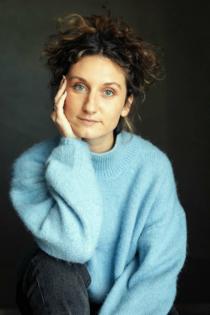
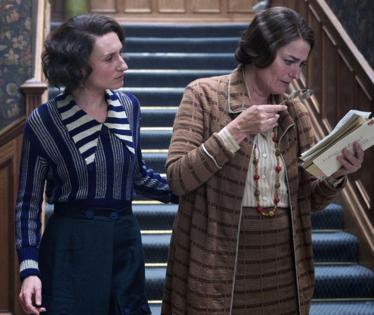
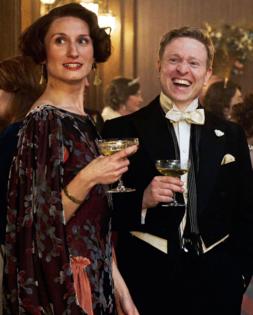
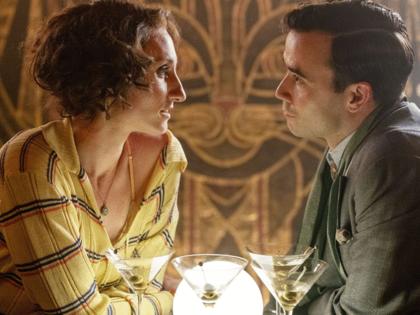
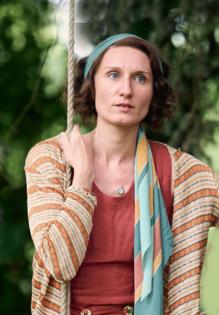

















Comments